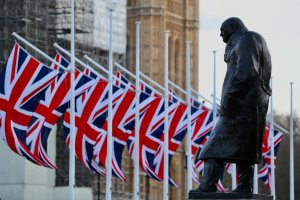- Commercial disputes
- Dispute Resolution

Longer Reads
Do company directors owe a ‘creditor duty’ when a company is nearing insolvency?
The Supreme Court, in a key judgment handed down on 5 October 2022 (BTI 2014 LLC v Sequana SA and others [2022] UKSC 25), has provided some important clarification around the scope of directors’ duties in the context of companies that are nearing insolvency.
2 minute read
Published 9 November 2022
Key information
- Specialisms
- Business
Factual background
The facts of the matter were as follows: in May 2009, the directors of AWA Ltd (‘AWA’) made a dividend distribution to its parent company, Sequana. The dividend was lawful and was distributed at a time when AWA was solvent but had a significant but uncertain liability in relation to clean-up costs following pollution of a river in Wisconsin, USA. It transpired some years later that this liability was in fact much greater than had been estimated, and AWA went into administration in October 2018. The assignee of AWA’s claims made a breach of duty claim against AWA’s directors for failing to consider or act in the interests of creditors at the time of the distribution of the dividend.
That claim failed at first instance, the Judge finding that the distribution had been lawful, and that the risk of insolvency at the time of the distribution was not sufficient to trigger an obligation to creditors on the part of the directors. An appeal against that judgment was dismissed by the Court of Appeal, with the Court holding that, while the authorities demonstrated that directors did owe a duty to consider the interests of creditors, this was triggered when the directors knew or should have known that the company was insolvent. The duty arose therefore immediately prior to insolvency, not simply because there was a real risk of future insolvency (which had been the position in AWA’s case). The appellants appealed to the Supreme Court. This was the first opportunity for that Court to consider the key issues of the existence, trigger and scope of a ‘creditor duty’.
Decision
The Supreme Court dismissed the appeal, all agreeing that AWA’s directors were not, at the time of the distribution, under a duty to consider the company’s creditors’ interests. While the decision to dismiss the appeal was unanimous, some members of the Court differed in the nuances of their reasoning for the decision.
Issues and rationale
Existence of a ‘creditor duty’
The Companies Act 2006 (s.172(1)) codified a long-established common-law duty that company directors are required to act in the way that is most likely to promote the success of the company for the benefit of its members as a whole. The Court held, however, that such a duty is modified in certain circumstances by a rule that the company’s interests (and it is to the company and, crucially, not the shareholders that the primary duty is owed) include the interests of its creditors (as a whole). This is because:
– there is a significant body of case law supporting that contention, the leading case being West Mercia Safetywear Ltd (in liq) v Dodd [1988] BCLC 250;
– this common law position is affirmed or preserved by s.172(3) of the Companies Act 2006 which makes a director’s duty ‘subject to any enactment or rule of law requiring directors, in certain circumstances, to consider or act in the interests of creditors of the company’; and
– the existence of the duty is justified by the fact that creditors have an economic (though not a proprietary) interest in a company’s assets, which interest naturally increases when the company is insolvent or nearly insolvent.
Therefore, a ‘creditor duty’ can be said to exist in certain circumstances, as a modification of a director’s primary duty to the company, but not as a free-standing duty owed directly to creditors themselves.
What is the trigger for the ‘duty’?
The members of the Court differed slightly in their approach to this question, but the majority held that the ‘duty’ becomes engaged at the point when a company’s directors know, or ought to know that the company is insolvent or is bordering on insolvency, or when an insolvent liquidation is probable. On the facts of the matter under consideration, the ‘duty’ was not engaged at the relevant time.
What is the scope of the ‘duty’?
The Court held that the creditor duty could apply to the payment of a lawful dividend since the directors’ authority to declare dividends under the Companies Act 2006 was subject to any rule of law to the contrary. Moreover, the shareholders could not authorise or ratify a transaction which was in breach of the duty to creditors. When the ‘duty’ becomes engaged, as above, a company’s directors are then required to balance the interests of creditors against the interests of shareholders (in instances where those interests may come into conflict). A ‘tipping point’ is reached, in terms of creditors’ interests becoming paramount, only at the point where an insolvent liquidation or administration becomes inevitable.
Implications
This important decision provides clearer guidance for company directors in considering the proper discharge of their statutory and common law duties when faced with the prospect of company insolvency and insolvent liquidation. Faced with impending insolvency, depending on the precise circumstances, a balancing exercise will need to be undertaken in respect of the impact of their decisions on the respective interests of shareholders and creditors – but what that means in practice may well be a matter for further consideration by the courts in future.
For more information, contact our insolvency lawyers.
You can also listen to our podcast episode “Directors’ duties: an introduction“.
Related content
Longer Reads
Do company directors owe a ‘creditor duty’ when a company is nearing insolvency?
The Supreme Court, in a key judgment handed down on 5 October 2022 (BTI 2014 LLC v Sequana SA and others [2022] UKSC 25), has provided some important clarification around the scope of directors’ duties in the context of companies that are nearing insolvency.
Published 9 November 2022
Associated sectors / services
Authors
Factual background
The facts of the matter were as follows: in May 2009, the directors of AWA Ltd (‘AWA’) made a dividend distribution to its parent company, Sequana. The dividend was lawful and was distributed at a time when AWA was solvent but had a significant but uncertain liability in relation to clean-up costs following pollution of a river in Wisconsin, USA. It transpired some years later that this liability was in fact much greater than had been estimated, and AWA went into administration in October 2018. The assignee of AWA’s claims made a breach of duty claim against AWA’s directors for failing to consider or act in the interests of creditors at the time of the distribution of the dividend.
That claim failed at first instance, the Judge finding that the distribution had been lawful, and that the risk of insolvency at the time of the distribution was not sufficient to trigger an obligation to creditors on the part of the directors. An appeal against that judgment was dismissed by the Court of Appeal, with the Court holding that, while the authorities demonstrated that directors did owe a duty to consider the interests of creditors, this was triggered when the directors knew or should have known that the company was insolvent. The duty arose therefore immediately prior to insolvency, not simply because there was a real risk of future insolvency (which had been the position in AWA’s case). The appellants appealed to the Supreme Court. This was the first opportunity for that Court to consider the key issues of the existence, trigger and scope of a ‘creditor duty’.
Decision
The Supreme Court dismissed the appeal, all agreeing that AWA’s directors were not, at the time of the distribution, under a duty to consider the company’s creditors’ interests. While the decision to dismiss the appeal was unanimous, some members of the Court differed in the nuances of their reasoning for the decision.
Issues and rationale
Existence of a ‘creditor duty’
The Companies Act 2006 (s.172(1)) codified a long-established common-law duty that company directors are required to act in the way that is most likely to promote the success of the company for the benefit of its members as a whole. The Court held, however, that such a duty is modified in certain circumstances by a rule that the company’s interests (and it is to the company and, crucially, not the shareholders that the primary duty is owed) include the interests of its creditors (as a whole). This is because:
– there is a significant body of case law supporting that contention, the leading case being West Mercia Safetywear Ltd (in liq) v Dodd [1988] BCLC 250;
– this common law position is affirmed or preserved by s.172(3) of the Companies Act 2006 which makes a director’s duty ‘subject to any enactment or rule of law requiring directors, in certain circumstances, to consider or act in the interests of creditors of the company’; and
– the existence of the duty is justified by the fact that creditors have an economic (though not a proprietary) interest in a company’s assets, which interest naturally increases when the company is insolvent or nearly insolvent.
Therefore, a ‘creditor duty’ can be said to exist in certain circumstances, as a modification of a director’s primary duty to the company, but not as a free-standing duty owed directly to creditors themselves.
What is the trigger for the ‘duty’?
The members of the Court differed slightly in their approach to this question, but the majority held that the ‘duty’ becomes engaged at the point when a company’s directors know, or ought to know that the company is insolvent or is bordering on insolvency, or when an insolvent liquidation is probable. On the facts of the matter under consideration, the ‘duty’ was not engaged at the relevant time.
What is the scope of the ‘duty’?
The Court held that the creditor duty could apply to the payment of a lawful dividend since the directors’ authority to declare dividends under the Companies Act 2006 was subject to any rule of law to the contrary. Moreover, the shareholders could not authorise or ratify a transaction which was in breach of the duty to creditors. When the ‘duty’ becomes engaged, as above, a company’s directors are then required to balance the interests of creditors against the interests of shareholders (in instances where those interests may come into conflict). A ‘tipping point’ is reached, in terms of creditors’ interests becoming paramount, only at the point where an insolvent liquidation or administration becomes inevitable.
Implications
This important decision provides clearer guidance for company directors in considering the proper discharge of their statutory and common law duties when faced with the prospect of company insolvency and insolvent liquidation. Faced with impending insolvency, depending on the precise circumstances, a balancing exercise will need to be undertaken in respect of the impact of their decisions on the respective interests of shareholders and creditors – but what that means in practice may well be a matter for further consideration by the courts in future.
For more information, contact our insolvency lawyers.
You can also listen to our podcast episode “Directors’ duties: an introduction“.
Associated sectors / services
- Commercial disputes
- Dispute Resolution
Authors
Need some more information? Make an enquiry below.
Subscribe
Please add your details and your areas of interest below
Article contributor
Robin
HenryPartner - Head of Dispute Resolution Services
Specialising in Banking & financial disputes, Commercial disputes, Corporate recovery, restructuring & insolvency, Financial regulatory, Financial Services and Personal insolvency
Enjoy reading our articles? why not subscribe to notifications so you’ll never miss one?
Subscribe to our articlesMessage us on WhatsApp (calling not available)
Please note that Collyer Bristow provides this service during office hours for general information and enquiries only and that no legal or other professional advice will be provided over the WhatsApp platform. Please also note that if you choose to use this platform your personal data is likely to be processed outside the UK and EEA, including in the US. Appropriate legal or other professional opinion should be taken before taking or omitting to take any action in respect of any specific problem. Collyer Bristow LLP accepts no liability for any loss or damage which may arise from reliance on information provided. All information will be deleted immediately upon completion of a conversation.
Close


















































































